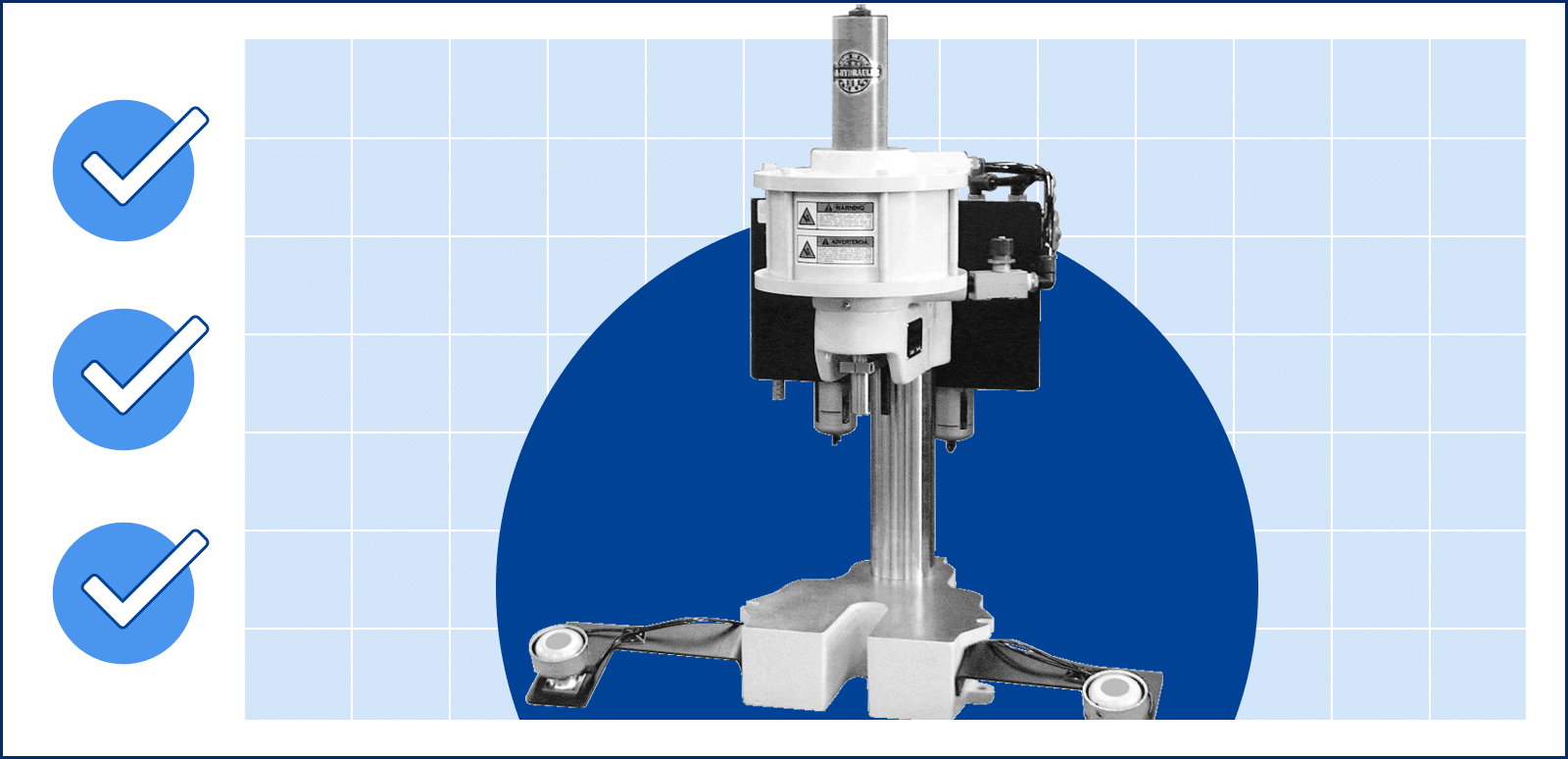
When looking for a shop or factory press, you have several options including manual, pneumatic, hydraulic, and hydropneumatic presses. These all have varying advantages and disadvantages. Let’s take a look at the advantages of a pneumatic press compared to other types.
What is a Pneumatic Press?
A pneumatic press, also known as an air press, uses the potential energy of compressed air to create force. Gas, usually nitrogen or regular air, is compressed within a cylinder to create pressure anywhere from 10 psi to 5,000 psi. This is then used to generate force, which can be used for a variety of different jobs, including assembly, riveting, punching, staking, stamping, and crimping, among others.
A pneumatic press differs from a hydraulic press and a hydropneumatic press because it doesn’t use compressed liquid. This difference in design and function is also what provides some of the main advantages of a pneumatic press.
What are the Advantages of a Pneumatic Press?
Lower Costs to Purchase
A pneumatic press relies on a relatively simple operation compared to hydraulic presses and some hydropneumatic presses. For this reason, pneumatic presses tend to be much less expensive to purchase. This is one of the biggest advantages of a pneumatic press. Adding a pneumatic press to your shop won’t require nearly as much saving, or take as much out of your budget as a hydraulic press or hydropneumatic press.
Manufacturing-grade air presses, like the 12-A and AP-400, start around $4,510 and $3,500, respectively. The C-400 10-ton air over oil press, which is comparable to most mid-range hydraulic presses, starts at about $12,500. A comparable, fully hydraulic press can be as much as three or four times more expensive than a hydropneumatic press!
Smaller Footprint
The pneumatic press’s relatively simple operation and function also has other benefits. If there are places in your shop that can be a tight squeeze or hard to get around, a pneumatic press might be ideal. Pneumatic presses tend to have a smaller footprint than hydropneumatic presses, and much smaller than hydraulic presses. This also makes them easier to move or relocate, which is especially handy if you see changes on the horizon for your shop.
Lower Costs to Maintain
Hydraulic presses require more maintenance compared to pneumatic presses. The addition of hydraulic fluid, and the accompanying components, can cause maintenance costs to add up quickly. They also require time and expertise to maintain properly, otherwise your investment will wear out prematurely which could result in unexpected downtime and non-conforming parts.
Pneumatic presses, on the other hand, require much less maintenance. Maintaining your pneumatic press, even one providing a lot of force, requires a few simple adjustments and check-ups. You’ll need to check and replace your air filters regularly, and keep the press components properly lubricated but comparatively, the low maintenance costs and demands are some of the biggest advantages of pneumatic presses.
Easy to Use
Unlike a manual press, which requires more force from the operator and can result in repetitive stress injuries, a pneumatic press provides consistent force on its own, which makes it easier to use. A pneumatic press has fewer risks of repetitive stress injuries, and tends to be more comfortable to use compared to manual presses.
Compared to hydraulic or hydropneumatic presses, pneumatic presses generally require less training, and they’re easier to learn. Workers can quickly become comfortable using a pneumatic press, making training easier and allowing more workers to become familiar with the device faster.
Plenty of Power
Though a hydraulic press and a hydropneumatic press provide more press force than a pneumatic press, these presses are by no means weak. A pneumatic press can provide up to 5,000 lbs of force, which is more than enough for a variety of jobs. As you’re choosing your press, it’s important to assess how much force you need beforehand. This will help you get the right amount of force, without overpaying.
Pneumatic presses can be easily overlooked by their more powerful counterparts, but they can be an easy and economical option for many different jobs. If you’re interested in a high-quality pneumatic press, or you’re not sure which press is the right fit for your shop, contact us. We’ll help you find a press that is both effective and economical.
